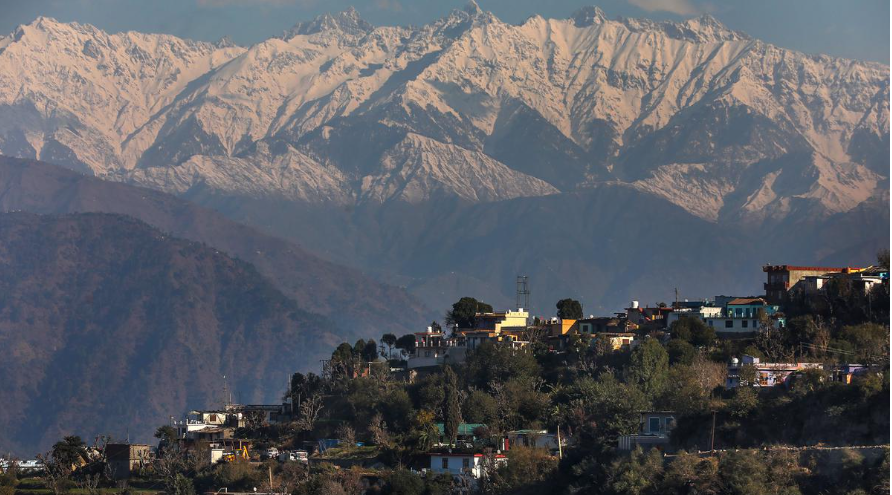16 Feb Lithium Discovery in the Reasi District of Jammu and Kashmir
Opportunities and challenges of lithium discovery in the Reasi District of Jammu and Kashmir
The recent discovery of lithium reserves in the Reasi district of Jammu and Kashmir has opened up new opportunities for India’s energy and technology industries. Lithium is a critical component in the production of electric vehicle batteries, and the discovery of Lithium reserves has the potential to significantly reduce India’s dependence on imported lithium, save the country billions of dollars, and create employment opportunities for the local population. However, there are also significant social, environmental, and geopolitical challenges associated with the development of these reserves.

Lithium Discovery
Facts on Lithium Discovery in Jammu-Kashmir
The lithium reserves in the Reasi district are estimated to be around 5.9 million tons. The development of lithium mining in the region could create significant employment opportunities for the local population, which has been struggling with high unemployment rates for years. “Lithium is a crucial material that was previously unavailable in India, so we were completely dependent on imports. The GSI (Geological Survey of India) G3 (advanced) analysis reveals the presence of best-quality lithium in large quantities near the base of the hills of the Mata Vaishno Devi shrine
Opportunities of Lithium
The discovery of lithium reserves in the Reasi district presents significant opportunities for India’s future. India is one of the largest importers of lithium, and the discovery of these reserves could significantly reduce India’s dependence on imports of this critical resource. This could save India billions of dollars in foreign exchange and reduce the country’s trade deficit. India’s push towards electric vehicles and renewable energy would also receive a boost, as lithium is a key component in the production of electric vehicle batteries and energy storage systems.
The development of the lithium mining industry in the region could also attract investment and boost overall economic development in the area. The development of downstream industries, such as battery manufacturing and recycling, could create additional employment opportunities and boost economic growth. The region could also attract investment in infrastructure development, which could benefit the local population and improve their living standards.
Social Challenges of Lithium Reserves
One of the primary social challenges associated with the development of lithium reserves in the Reasi district is the displacement of local communities. The development of the lithium mining industry could lead to the displacement of local communities, which could have significant social and economic consequences. It is essential that the development of the industry takes into account the needs and concerns of the local population and ensures that they are not negatively impacted by the development.
Another social challenge is the lack of local skills and knowledge required for lithium mining. The mining of lithium requires skilled and semi-skilled labor, and the development of the industry could create jobs for the people of Reasi and nearby areas. However, there is a lack of skilled labor in the region, and it may be necessary to bring in outside labor to fill these positions.
Environmental Challenges
The mining of lithium can have significant environmental impacts, including water pollution, deforestation, and soil degradation. The hard rock in the mountain region in the Reasi district would necessitate open mining and it may lead to a lot of pollution in the area. It is essential that the mining of lithium in the Reasi district is done in a responsible and sustainable manner, with appropriate measures taken to mitigate any negative impacts on the environment and the local population. The use of environmentally friendly mining techniques, such as dry mining, can help reduce the environmental impact of lithium mining.
Geopolitical Challenges
The discovery of lithium reserves in the Reasi district has significant geopolitical implications. India’s push towards electric vehicles and renewable energy has created a high demand for lithium, and the discovery of lithium reserves could significantly reduce India’s dependence on imported lithium. This has the potential to upset the global lithium supply chain, which is currently dominated by China, Australia, and South America. India’s increased lithium production could also affect global lithium prices, potentially leading to increased competition and geopolitical tensions. Also being closer to the international border with Pakistan, now there are more incentives for Pakistan to disrupt the relatively peaceful security situation in the Jammu region by exporting the cross border terrorism into the region. Even China may use Pakistan`s capacity to create troubles on the Indian side of Jammu and Kashmir to delay the lithium mining project
Conclusion
The discovery of lithium reserves in the Reasi district presents significant opportunities for India’s future. The development of the lithium mining industry could create employment opportunities, attract investment, and boost economic development in the region. However, it is essential that the development of the industry takes into account the needs and concerns of the local population.
Source:
Daily Current Affairs for UPSC
PLUTUS IAS CURRENT AFFAIRS 16th FEB 2023
The topic described above is related to the Opportunities and challenges of lithium discovery in the Reasi District of Jammu and Kashmir which is based on science and technology and the natural energy of India. The article is under the daily current affairs for the UPSC examination. Get such kinds of the best daily current affairs for the UPSC examination free of cost. Also, read the latest weekly and monthly current affairs today for IAS exam preparation.



No Comments